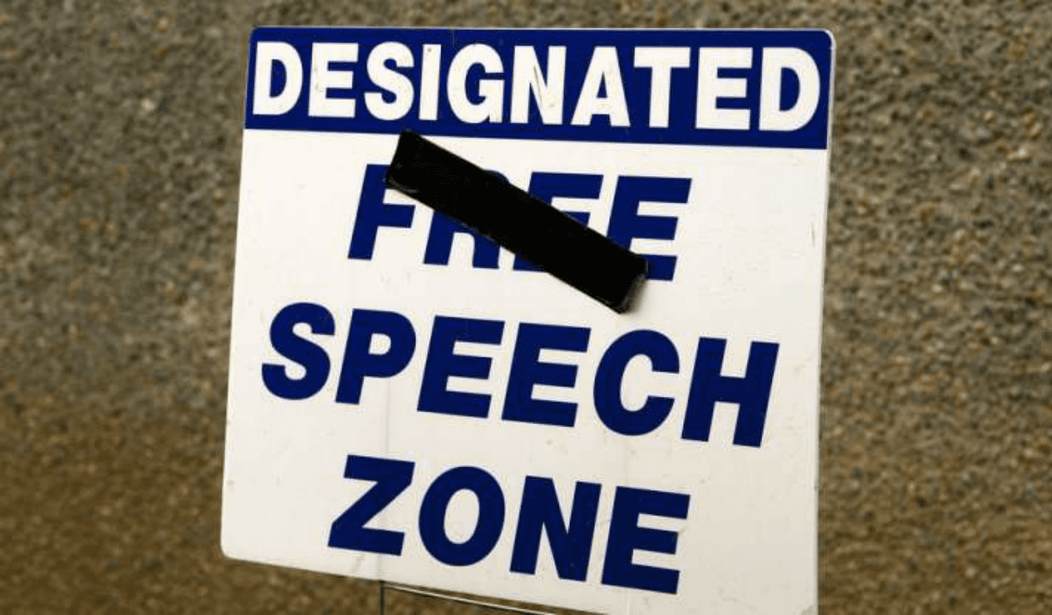Campus speech codes, such as “hate speech policies,” discriminate against people with Asperger’s and related conditions, argues one professor in a recent op-ed.
Geoffrey Miller, a professor at the University of New Mexico, advanced the claim in an essay for Quillette, arguing that campus speech codes impose unrealistic demands on students and professors with Asperger’s, Tourette’s, ADHD, and other conditions.
These conditions can cause people to say things impulsively (ADHD), blurt out offensive comments (Tourette’s), and reduce one’s ability to understand social norms (Asperger’s), yet campus speech codes make no concessions for these students, argues Miller.
According to the Foundation for Individual Rights in Education (FIRE), almost 40% of colleges in the U.S. maintain “severely restrictive” speech rules that regulate constitutionally protected speech on campus, according to a report published in 2017.
Designed to prevent racist, sexist, classist, and heterosexist remarks, these speech codes threaten students and professors with sanctions if they dare joke about, say, a Pakistani call center or illegal immigration.
Those who fail to comply with college speech codes, such as by offending another student or by expressing Republican viewpoints, may be reported to an administrator or a “bias response team,” and could face numerous consequences, regardless of whether they intended to cause offense or not.
Therein lies the problem. Campus speech codes assume all students can anticipate whether or not their speech might hurt the feelings of another person, and adjust themselves accordingly (before they accidentally offend someone). But students who are non-neurotypical, Miller argues, have an especially difficult time doing this.
The result? Students and professors with Asperger’s and related conditions are held to rules that are “literally incomprehensible” to them, according to Miller. “It’s impossible to follow a rule that doesn’t make sense,” he notes.
Miller, the first academic to raise this concern, told PJ Media he was motivated to write about this issue after he noticed a pattern among the types of people who were falling prey to disciplinary action from their colleges.
“Professors who got in the most trouble for violated speech codes often seemed to be on the autism/Asperger’s spectrum,” says Miller, who has spent almost 30 years in academia. “They didn’t mean to upset people; they just didn’t anticipate other people’s reactions very accurately.”
Treating these people like thought-criminals is problematic, Miller notes, because “if we stigmatize everybody who’s neurodiverse and drive them out of academia in the name of political correctness, we’ll lose a huge proportion of our most creative minds.”
Case in point: Tim Hunt, a nerdy male scientist who won the Nobel Prize in 2001 for his work on cell biology, is one of most high-profile researchers who’ve been driven out of academia for causing offense.
Hunt, believed to have Asperger’s, was forced to resign from University College London after he remarked that women in research labs “‘fall in love with you … you criticize them, [and] they cry,” during a speech he gave at a science conference.
While it’s worth noting that Hunt wasn’t disciplined for violating a speech code, the international outrage that caused him to resign is rooted in the same ethos that campus speech codes are. Namely, that thought-crime must be punished swiftly and severely.
Students and professors who make off-the-cuff remarks are very rarely forced to resign because of it, but rather are often subject to informal warnings from their friends or supervisors.
But Miller argues that this still causes a problem. He suspects “aspy faculty and students are especially confused by the informal warnings, since they aren’t good at connecting the dots between vague speech codes and veiled threats.”
The solution? Miller argues that campus speech codes are a violation of the 1990 Americans with Disabilities Act (ADA), since they impose a “disparate impact” on students and professors with disabilities.
Addressing the issue through a disability-rights lens might solve the issue, Miller argues, because it would make colleges “vulnerable to a lot more lawsuits based on the Americans with Disabilities Act of 1990,” he told PJ Media.
“If university administrators aren’t scared of losing a few First Amendment lawsuits a year, maybe a few hundred ADA lawsuits will get their attention.”
Read Geoffrey Miller’s full argument here.
Follow the author of this article on Twitter: @Toni_Airaksinen.










Join the conversation as a VIP Member